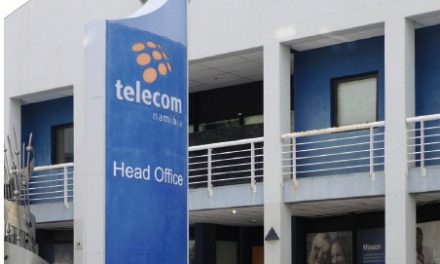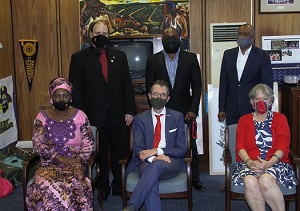
Auctioning process for radio frequency spectrum commences

The Communications Regulatory Authority of Namibia (CRAN) last week commenced with the auctioning process for radio frequency spectrum, bands 694-790 MHz and 790-862 MHz allocated to International Mobile Telecommunications (IMT) services on a primary basis.
Spectrum auctions are one of the spectrum assignment methods set out in the spectrum licensing regulations and are chosen given the high demand for spectrum in the 700 MHz and 800 MHz spectrum bands. The process will be conducted as per the provisions of the spectrum licensing regulations and processes as set out in the auction bidding document.
According to a statement released this week, these spectrum bands are commonly referred to as the 700 MHz and 800 MHz spectrum bands and utilised by telecommunications service licensees to provide
4G and or 5G mobile services in Namibia and to roll out communications services in all regions to 80% of the population.
“The Authority assumes full responsibility for spectrum assignment based on the principles of independent decision-making and impartiality and it is the Authority’s primary and legislative objective to promote competition in the telecommunications sector through efficient spectrum management. To this end, the Authority adopted a holistic approach in determining a roadmap for the release of spectrum for the period 2022 to 2024,” said CRAN acting Chief Executive, Katrina Sikeni.
This process was designed to provide telecommunications service licensees with regulatory certainty on which spectrum will be made available for assignment to facilitate the rollout of telecommunications and broadcasting networks and implementation of emerging technologies, platforms, and applications to the benefit of the end user.
The Authority makes spectrum available subject to the imposition of licence conditions to attain national strategic objectives as set out in the National Broadband Policy, added Sikeni.
Sikeni said that the expansion of broadband services by licensees will improve the quality of telecommunications services and inclusivity for Namibians living in unserved and underserved areas at prescribed broadband speeds and quality of service minimum parameters.
Additionally, the spectrum will be utilised to foster digital transformation beyond the delivery of broadband, through the implementation of e-education, e-health, e-agriculture, e-government, and other use cases to realise the true benefits of new technologies.
Moreover, the spectrum to be assigned will be utilised for mobile services, providing broadband services with a download speed of not less than 20 Mbps to ensure meaningful connectivity. This will enable schools to have sufficient network connectivity, to provide online teaching lessons.
Sikeni pointed out that only telecommunications service licensees can apply to participate in the auction process, as they were consulted on the preferred assignment method and concluded that the spectrum is made available for assignment via spectrum auction following a beauty contest model.
“All bidders are required to submit a detailed business case, inclusive of rollout plans for the next three years for expanding broadband connectivity in regions with less than 80% 4G population coverage to meet the national objective of 80% population coverage,” concluded Sikeni.












































